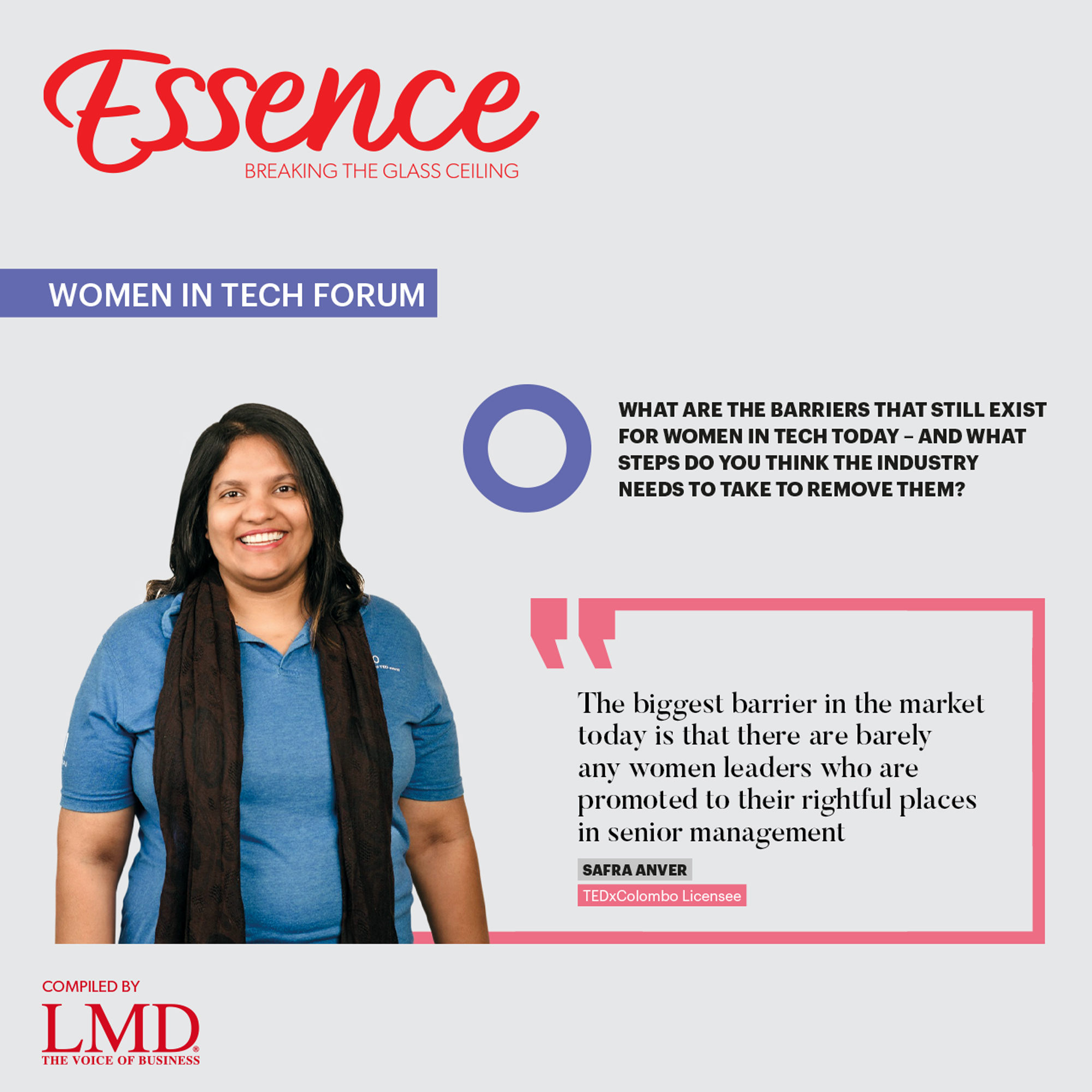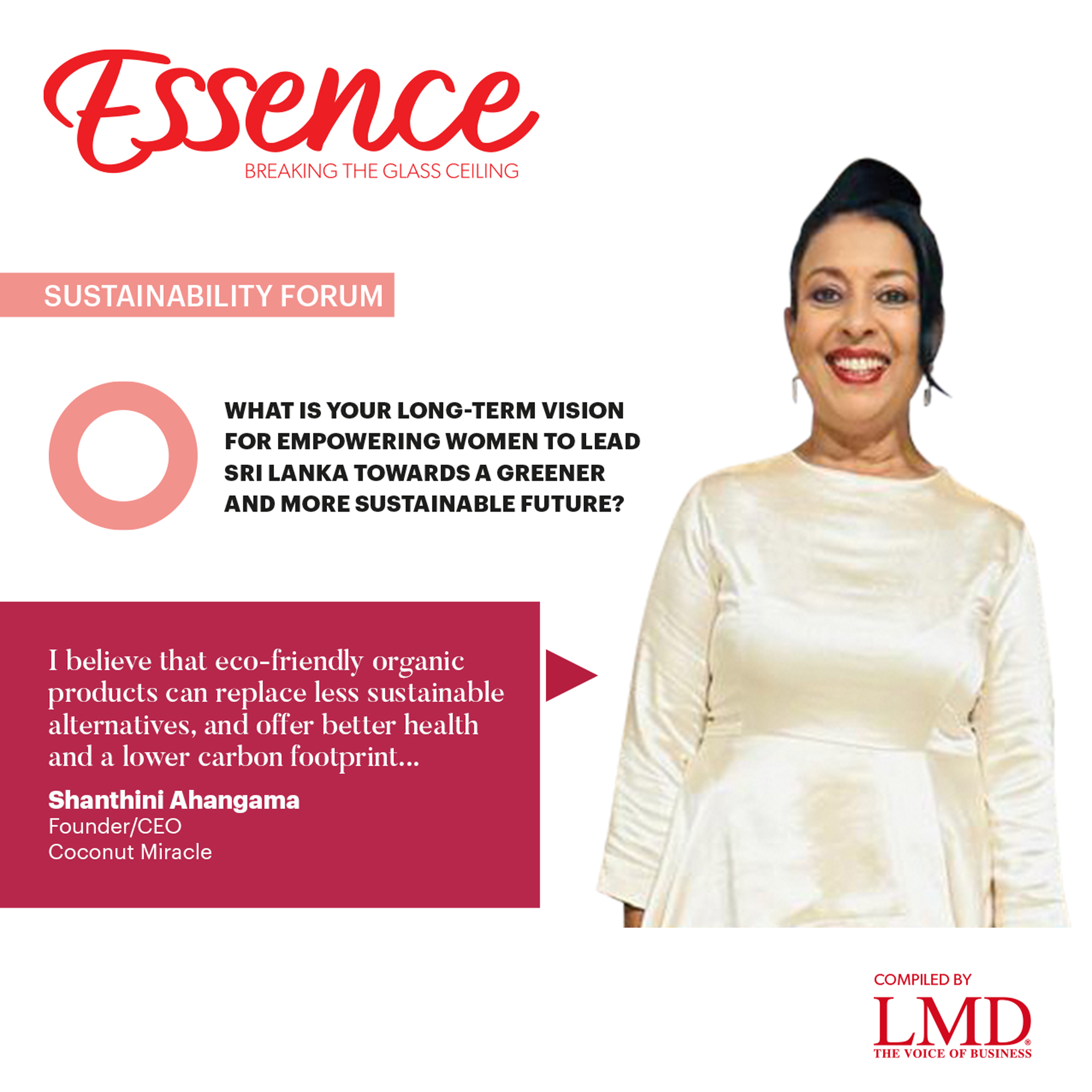STANDARD CHARTERED SRI LANKA
 Q: How do you view women’s representation in the public and private sectors?
Q: How do you view women’s representation in the public and private sectors?
A: Men and women hail from different experiences and views. Women bring diversity into a company’s culture and this helps teams challenge each other in a way that will bring the best out of each member of staff.
In a diverse workforce, the attributes of one gender complement the other – and that is why organisations need to maintain a balance in their workforce.
Q: Is it possible for a company to prevent gender biases entirely?
A: Companies should actively promote a culture without any unconscious biases. This plays a critical role in motivating men and women to work in harmony in a more inclusive workplace.
At present, although many companies in Sri Lanka work towards eliminating any unconscious bias, their efforts are still slow paced as employees from different backgrounds and upbringings try to remain cautious.
At Standard Chartered, we promote a culture that eliminates any possibility of an individual being at a disadvantage – especially during the recruitment or evaluation process – due to their gender.
Q: In your view, do Sri Lankan women have the potential to go global?
A: Yes, we have many meticulous women in the corporate sector who have the potential to achieve great things. It is about working with different dynamics and diverse cultures.
Having a solid support network at home and work helps you succeed – particularly when you have to work away from your home country. I was fortunate to receive this support from my family and the bank.
As long as you are comfortable moving away from your comfort zone and fearless in the face of challenges, any Sri Lankan woman can go global.
Q: How would you describe the role of education, training and professional development in this context?
A: While education and training could provide the basic skills for an individual to perform, certain other factors play a critical role in ensuring the success of a person.
The relationships you build within your professional network, knowing your resources, learning from your experiences and being informed – especially about technology, the economy and regulations – play a pivotal role in the growth of an individual.
Education and training coupled with these factors will help professionals reach new heights in their careers.
Q: And how can women in business maintain a healthy work-life balance?
A: Irrespective of gender, a healthy work-life balance is essential for any individual. Women tend to face challenges in maintaining this balance – especially at crucial milestones in their personal life.
Therefore, it is essential to learn how to strike a balance between your professional and personal lives. I find my work-life balance is at its best when I’m organised, and delegate and maintain healthy boundaries between home and office work.
At Standard Chartered, we have launched a number of initiatives such as a ‘Buddy System’ where new mothers returning to work after maternity leave are assigned a buddy who has had similar experiences in the recent past to help ease them back into work; and a crèche facility that allows parents to care for their young children while continuing their careers.
Similarly, many organisations are ensuring that women are offered the necessary support to excel in their careers.
Q: Is the gender gap closing here in Sri Lanka?
A: Traditionally, women play an active role in raising a family in Sri Lanka. To continue their careers while raising a family, support from the family and the organisation is vital. We see a trend in women leaving their jobs for their families when they don’t have a support network. This actively contributes to Sri Lanka’s gender gap.
However, most organisations have realised this shortcoming and taken measures to address its causes. With organisations opting for new ways of working because of the pandemic, it has benefitted the cause of retaining the right balance. They’re provided with the opportunity to work from anywhere on flexible time schedules.
The gender gap in Sri Lanka continues to narrow; however, this process needs to be accelerated. In the next two or three years, I hope Sri Lanka evolves into a nation with a gender balanced workforce.





